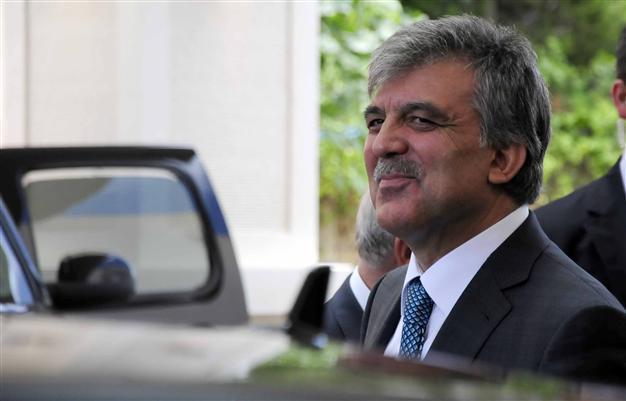Turkish President Gül calls for heeding ecological concerns
ANKARA

AA Photo
Turkish President Abdullah Gül has expressed the need to urge for the adoption of a development policy that heeds harmony between the ecology and economy.
Prime Minister Recep Tayyip Erdoğan, on the other hand, praised his government’s controversial environmental and urban planning policies on the occasion of World Environment Day.
“It is indispensable to rapidly and responsibly act about the environment, to embrace an understanding of development that heeds harmony between the ecology and economy, to begin implementing long-term plans and programs for the future and training all segments of society about this issue before problems become unpreventable,” Gül said in a written message released on June 5, on World Environment Day.
“I want to state one more time that I consider environmental problems one of the most primary issues of our country, likewise education and health. I welcome the improvement of sensitivity about the environment in our society,” Gül said.
On World Environment Day, Erdoğan attended a collective opening ceremony for solid waste regular storage facilities that was hosted by the Environment and Urban Planning Ministry.
Turkey has been acting “extremely sensitive” concerning environmental problems, Erdoğan argued.
The government has drawn its targets for the year 2023, the 100th anniversary of the foundation of the Republic of Turkey, in line with the principle of sustainable development, the prime minister said, and added: “Of course, our view of environment is different than popular environmentalist movements in the West. We consider the environment, that is to say, nature, as the creation of God, as entrusted by God.”
Only days ago, Turkey marked the first anniversary of the Gezi protests, which spread nationwide due to the excessive use of force by the police against peaceful protesters. The initial protesters were demonstrating with environmentalist concerns regarding the destruction of Istanbul’s last downtown leafy corner – Gezi Park – and the building of a shopping mall in the form of an Ottoman barracks. The demonstrations started as a sit-in at the park before spreading to become massive anti-government protests throughout the entire country.
Of the 10 people whose deaths were related to the demonstrations, one was a police officer.
“A city which is solely composed of concrete, asphalt and metal is a mechanic city that has no spirit. We want cities, which we consider as living beings, to have spirit, identity and to be authentic. Our goal is to build cities and residential zones that will inspire poets, artists and composers,” Erdoğan said.
Particularly since the Gezi Park unrest, the ruling Justice and Development Party (AKP) government’s urban transformation policies, widely implemented by the country’s state-run housing agency, the Housing Development Administration (TOKİ), working under the Prime Ministry, are subject to harsh criticism.
TOKİ has been increasingly condemned for the concretion of urban areas and destroying their sui-generis characteristics.
